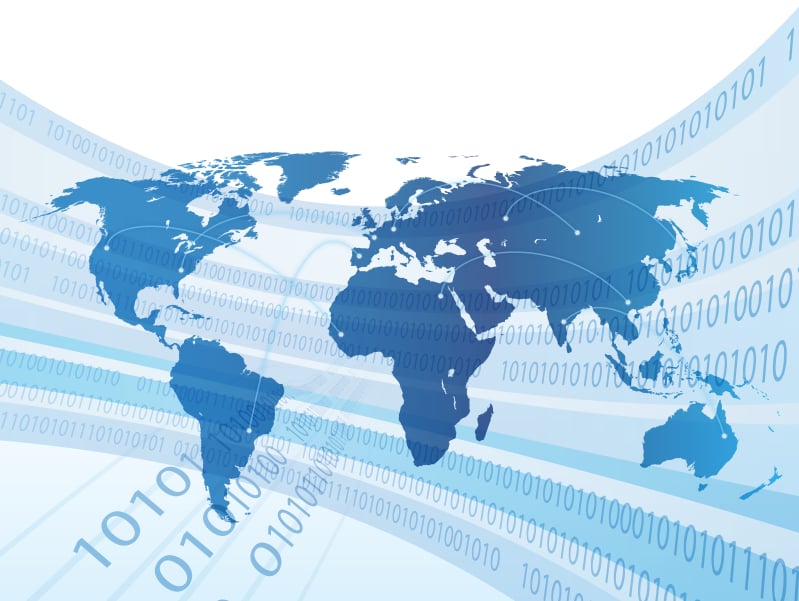Global Deal to Slash Tech Tariffs Goes into Force, but with a Hitch
Friday, Jul 01, 2016, 10:00am
by John Neuffer, President and CEO
After more than four years of often turbulent negotiations to expand the Information Technology Agreement (ITA), tariffs on roughly $1.3 trillion in trade in tech products finally start marching to zero today. All in, the agreement will boost the global economy by an estimated $190 billion annually, spur productivity in developing and developed economies, and support an additional 60,000 American jobs.

The expanded ITA is a decisive step forward for free trade and innovation. At a time when our country’s political rhetoric includes far too much false, anti-trade demagoguery, the ITA is a shining example of the type of strong trade agreements that are possible through hard work and international collaboration.
As agreed by 50 signatories in Nairobi at a WTO Ministerial Conference convened there in December, commencing today, July 1, tariffs on some products will disappear immediately while other tariffs will evaporate over the next several years in a process known as “staging.” Products covered by this landmark agreement include GPS navigation devices, MRI machines, video game consoles, touch screens, printer ink cartridges, advanced semiconductors, and literally hundreds of other gadgets, parts, and components.
Like so many things in life, all that sparkles is not gold, at least not quite yet. While most signatories to the agreement have ably completed the technical work they needed to do at home to live up to the commitments they made in Nairobi to implement on July 1, there are some notable slowpokes.
Included in the job-well-done column are Taiwan, Thailand, Malaysia, the European Union and the United States. In fact, the presidential proclamation that puts U.S. tariff cuts in place under ITA expansion was made public just yesterday.
The key players dragging their feet include China, which will be one of the biggest beneficiaries of ITA expansion, given its status as a powerhouse in the tech trade arena. One hopes China’s hosting the G20 meetings this year might help it focus on completing its ITA homework before it gets too overdue. You see, G20 trade ministers meet in Shanghai on July 9 and then the G20 leaders gather for a summit in Hangzhou on September 4-5. As host, Beijing has identified 10 key objectives for that summit, including promoting innovative growth and expanding global trade. Since ITA expansion is all about getting innovative tech products into the hands of consumers and promoting growth through expanded trade, it sure seems it would be in China’s interest to finish implementation before those meetings.
Another straggler is Korea, which is also a major tech trader and will enjoy significant benefits from ITA expansion. Word is Seoul may have been a bit slow to initiate the domestic work it must complete to implement. Similar to China, perhaps all the talk of the need to promote trade and innovation at the G20 meetings will compel Seoul’s leadership to run faster to get on the ITA-implementation bus.
The other prominent player late to implement is Japan. To be sure, Tokyo has been pretty distracted. Western Japan was hit by a major earthquake in April, its Upper House is holding an election this month, and the TPP has been sucking away all the trade oxygen from its parliament. Given Japan only needs to adjust a handful of tariff lines to implement ITA expansion, the commercial relevance of being tardy has little significance. Not getting its ITA house in order, however, gives political cover to China and Korea, so we hope Tokyo will implement posthaste.
To be sure, there is a clause in the official ITA expansion declaration that gives parties some implementation wiggle room – something to the effect that parties to the agreement must implement the first wave of tariff cuts on July 1 “subject to the completion of domestic procedural requirements” by those parties. Given how hard everyone worked to reach agreement after four grueling years of negotiations and the many and abiding benefits ITA expansion will yield, it’s pretty disappointing some of the major beneficiaries are relying on this technical, process clause and missing the deadline.
Bottom line, this landmark agreement is now in force and that’s great news. As for the big foot-draggers, they are fortunately suggesting they will be done with their domestic procedures over the next few months. The global economy, all the consumers set to benefit from ITA expansion, and a WTO that has its reputation on the line over seeing this gets fully implemented certainly hope so. With the shock of Brexit and the troubling rise in trash talk on trade in the U.S. presidential election, we could all do for the even cleaner win on trade ITA expansion can deliver when everyone ponies up.